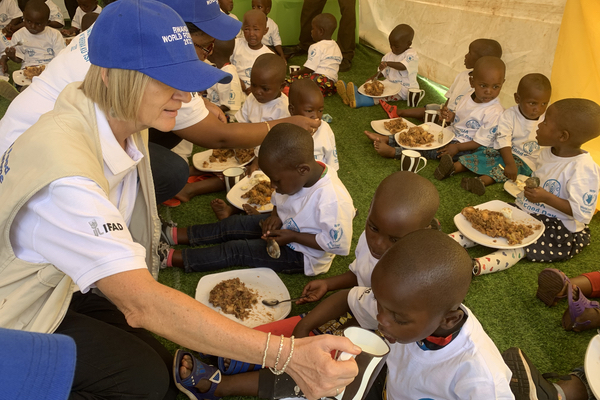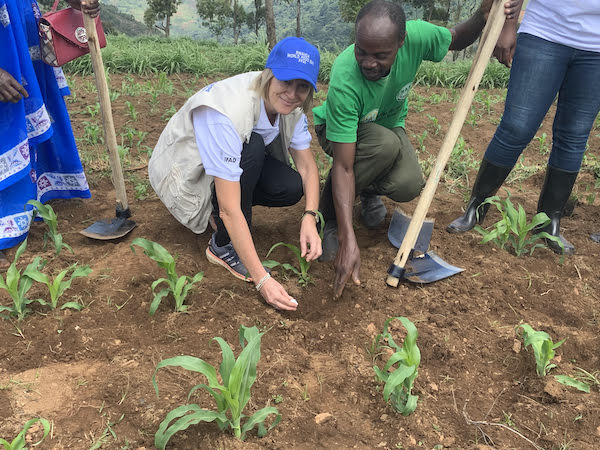
Rongi, Muhanga: She made the statement yesterday during a press interview on October 28, in Muhanga District, Rongi sector when the global community has been marking the celebration of the World Food Day 2022 under the theme: ‘Leave NO ONE behind.’
She said that good progress was made despite some barriers including the impacts of Covid-19 the war in other parts of the country.

WFP Representative Edith Heines in Rongi Sector, Muhanga District, on World Food Day 2022 applying fertilizers on plants
“Luckily, Rwanda has not been doing so bad, and the government has very strong policies in place that we are supporting as well, the problem of malnutrition and stunting is still an issue in the country, the 3 percent, it means that most of the children under the age of five (5) are too short-fold their age. ” Heines said, giving an example of a school feeding programme that tried to bring some solutions towards eradicating malnutrition and stunting among the children at school.
“As we have been supporting the government and their strategies to provide technical assistance in general, let me give you an example of the project that I think is the most beautiful example which addresses a number of issues, from children nutrition, food security, but also agriculture, economy and employment, and that is school feeding”, she said.
“World Food Programme has been doing school feeding in the country for many years, through that work over those years we work with the government especially the ministry of education, Ministry of Agriculture as well as NCDA for nutrition. We have been helping the government to develop a model to help them start a national school feeding programme, so the government is doing school feeding for all the children in pre-primary, primary and secondary levels.” Heines added.
She said that the beauty of this model that the government is using is that it is linked to the farmers, whereby schools manage to buy food locally with some incentives for the economy and for Agriculture development.
“I think that this combination that links education with nutrition and agriculture is really a very strong model, and the government has been supporting it strongly and has been dedicating efforts to support this programme.” Heines said. (End)
